

Are you tired of feeling nervous and uncertain every time you have to speak in public? Do you want to captivate your audience with confidence and charisma? Look no further! I am here to help you take your speaking and presentation skills to new heights. With my guidance, you will become an exceptional communicator who leaves a lasting impact on any audience.
In today's fast-paced world, it's no longer enough to simply deliver information. You need to connect with your audience on a deeper level and make your message resonate with them. That's where I come in. Whether you're pitching a product, giving a keynote address, or leading a team meeting, I can assist you in crafting a compelling narrative that cuts through the noise and engages your listeners.
Imagine being able to command the stage effortlessly, captivating everyone in the room with your words. With my rare talent for storytelling and connecting with people, I can teach you how to do just that. From making them laugh to bringing tears to their eyes, I know how to create an emotional connection that makes your message memorable.
But it doesn't stop there. Unlike other speakers or coaches who focus solely on inspiration without tangible results, my main objective is to empower individuals like you by equipping them with practical techniques they can implement immediately. We will work together closely, identifying areas for improvement and honing your delivery until it becomes second nature.
As an internationally acclaimed TEDx speaker and coach, I have had the privilege of transforming countless business owners' messaging. Through my proven methodology, we will uncover the core essence of your brand and translate it into a powerful narrative that resonates with any audience—whether they are experts in your field or completely new to it.
The key is confidence and clarity—the two pillars of successful public speaking. Together, we will build your self-assurance from the ground up, ensuring that you feel comfortable and in control every time you step onto the stage. We will also work on honing your message, distilling complex ideas into simple, relatable language that anyone can understand.
Don't let fear or uncertainty hold you back any longer. Now is the time to invest in yourself and unlock your true potential as a communicator. Let's connect and create something truly magical together. Your audience is waiting to be inspired by you.
Available For: Advising, Consulting, Speaking
Travels From: United Kingdom
Speaking Topics: Your message says it all, Create your story to sell your product, Speaking with purpose to get results,
| Bev Hepting | Points |
|---|---|
| Academic | 0 |
| Author | 200 |
| Influencer | 45 |
| Speaker | 13 |
| Entrepreneur | 20 |
| Total | 278 |
Points based upon Thinkers360 patent-pending algorithm.
Hot off the press: Stay in the know with our latest news!
 Pitching at a Networking Meeting vs. Pitching to Get Funding: What's the Difference?
Pitching at a Networking Meeting vs. Pitching to Get Funding: What's the Difference?
Tags: Entrepreneurship, Leadership, Marketing
 Self-Sabotage: The Hilarious Way We Keep Tripping Over Our Own Feet (and How to Finally Stop Doing It)
Self-Sabotage: The Hilarious Way We Keep Tripping Over Our Own Feet (and How to Finally Stop Doing It)
Tags: Entrepreneurship, Leadership, Marketing
 The Power of Eye Contact in Public Speaking
The Power of Eye Contact in Public Speaking
Tags: Management, Leadership, Coaching
 How the Fear of Public Speaking Stops You from Creating a Compelling Story
How the Fear of Public Speaking Stops You from Creating a Compelling Story
Tags: Management, Leadership, Coaching
 Connecting with Your Audience: The Art of Public Speaking
Connecting with Your Audience: The Art of Public Speaking
Tags: Management, Leadership, Coaching
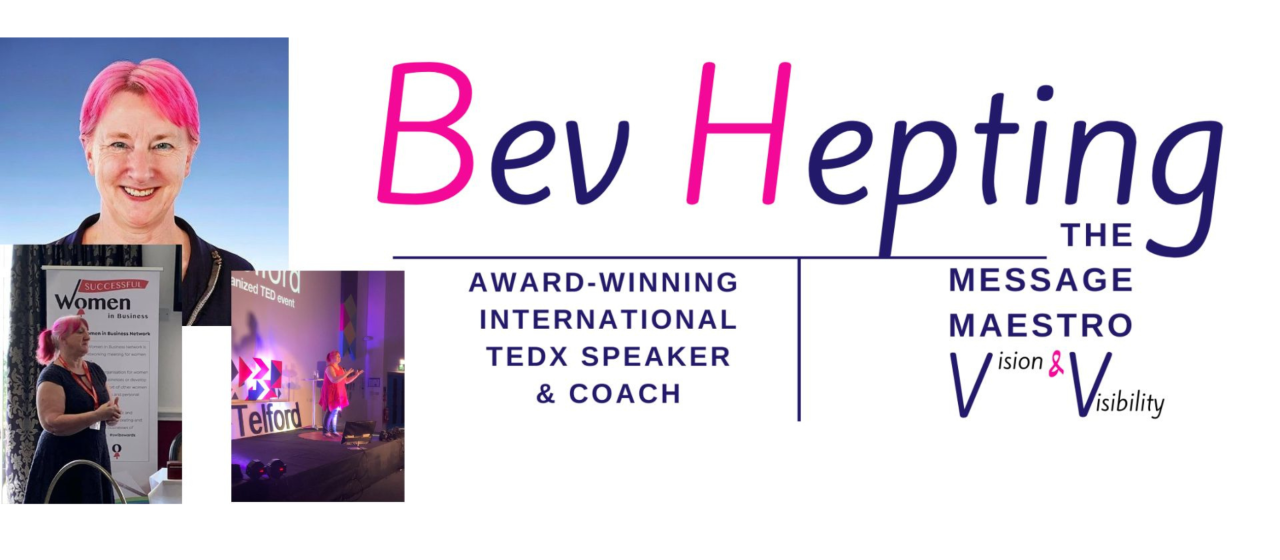 Get over the fear of public speaking
Get over the fear of public speaking
Tags: Leadership, Business Strategy
 The Invisible Generation:
The Invisible Generation:
Tags: Management, Leadership, Coaching
 Storytelling: Learn how.
Storytelling: Learn how.
Tags: Leadership, Marketing, Sales
 "Storytelling presentations: Not just about the words!"
"Storytelling presentations: Not just about the words!"
Tags: Management, Leadership, Coaching
 Examples of Brand storytelling that work
Examples of Brand storytelling that work
Tags: Leadership, Entrepreneurship, Customer Loyalty
 Tips For Staying Motivated At Work
Tips For Staying Motivated At Work
Tags: Leadership, Entrepreneurship, Customer Loyalty
 The Seven Spiritual Laws of Success
The Seven Spiritual Laws of Success
Tags: Leadership, Entrepreneurship, Customer Loyalty
 Balance of Sprit and Physical.
Balance of Sprit and Physical.
Tags: Leadership, Entrepreneurship, Customer Loyalty
 Stories to attract clients
Stories to attract clients
Tags: Management, Leadership, Coaching
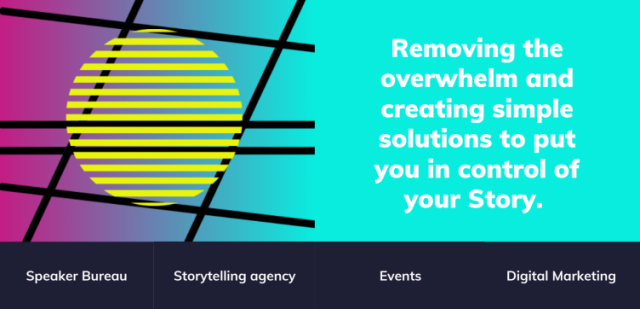 Storytelling to raise your brand
Storytelling to raise your brand
Tags: Management, Leadership, Coaching
 Just because you can, doesn't mean you should
Just because you can, doesn't mean you should
Tags: Management, Leadership, Coaching
 3 Ways to Show Off Your Personality on Social Media
3 Ways to Show Off Your Personality on Social Media
Tags: Management, Leadership, Coaching
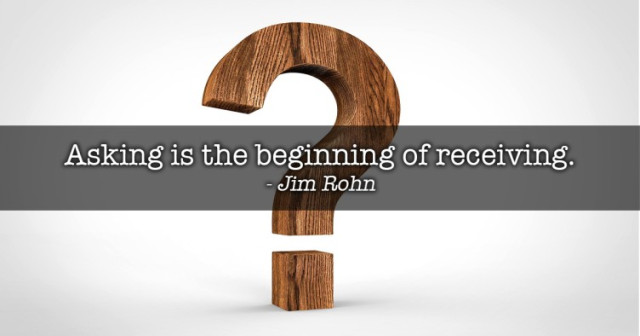 3 things your business plan must-have.
3 things your business plan must-have.
Tags: Management, Leadership, Coaching
 Don't be lazy on Zoom
Don't be lazy on Zoom
Tags: Management, Leadership, Coaching
 Events don't just happen
Events don't just happen
Tags: Management, Leadership, Coaching
 Get ready to unlock the potential of your business story
Get ready to unlock the potential of your business story
Tags: Entrepreneurship, Leadership, Marketing
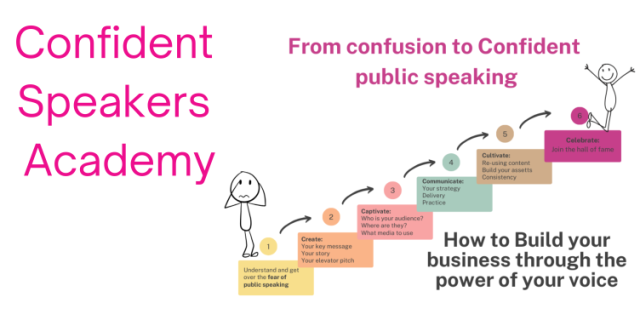 Unleash Your Inner Rockstar: Conquering Stage Fright for Aspiring Entrepreneurs
Unleash Your Inner Rockstar: Conquering Stage Fright for Aspiring Entrepreneurs
Tags: Leadership, Coaching
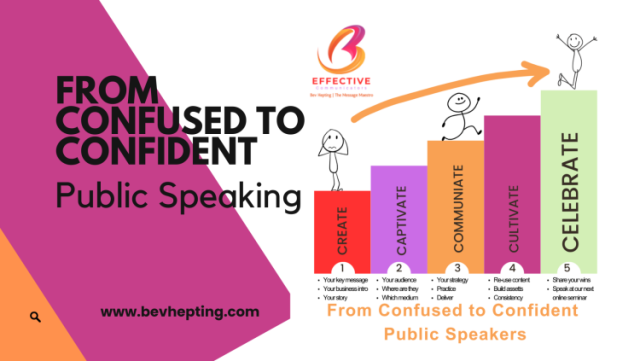 The Hilarious Side Effects of Public Speaking
The Hilarious Side Effects of Public Speaking
Tags: Management, Leadership, Coaching
 The Power of Storytelling in Your Marketing Strategy
The Power of Storytelling in Your Marketing Strategy
Tags: Management, Leadership, Coaching
 Why People Struggle to Find Their Key Message in Business
Why People Struggle to Find Their Key Message in Business
Tags: Management, Leadership, Coaching
 Simple Life Tips
Simple Life Tips
Tags: Leadership, Entrepreneurship, Coaching
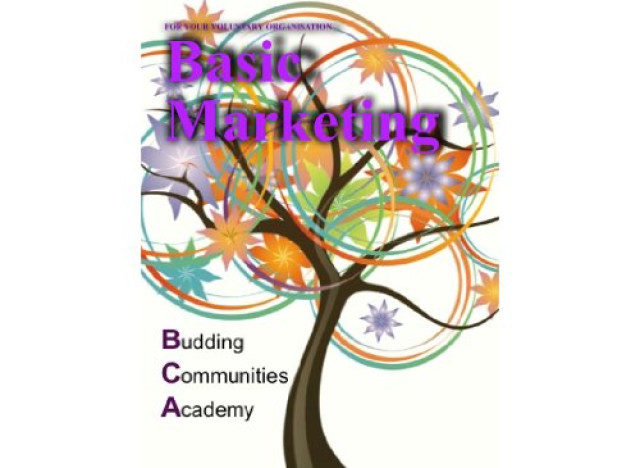 Bsic Guide to Marketing
Bsic Guide to Marketing
Tags: Leadership, Marketing, Entrepreneurship
 Bev Hepting
Bev Hepting
Tags: Startups, Leadership, Entrepreneurship, Business Strategy

Tags: Startups, Leadership, Marketing, Entrepreneurship

Tags: Startups, Leadership, Marketing, Entrepreneurship

Tags: Startups, Leadership, Marketing, Entrepreneurship

Tags: Startups, Leadership, Marketing, Entrepreneurship

Tags: Startups, Leadership, Marketing, Entrepreneurship

Tags: Startups, Leadership, Marketing, Entrepreneurship

Tags: Startups, Leadership, Marketing, Entrepreneurship

Tags: Startups, Leadership, Marketing, Entrepreneurship

Tags: Startups, Leadership, Marketing, Entrepreneurship

Tags: Startups, Leadership, Marketing, Entrepreneurship

Tags: Startups, Leadership, Marketing, Entrepreneurship

Tags: Startups, Leadership, Marketing, Entrepreneurship

Tags: Startups, Leadership, Marketing, Entrepreneurship

Tags: Startups, Leadership, Marketing, Entrepreneurship

Tags: Startups, Leadership, Marketing, Entrepreneurship

Tags: Startups, Leadership, Marketing, Entrepreneurship
Tags: Change Management, Entrepreneurship, Marketing
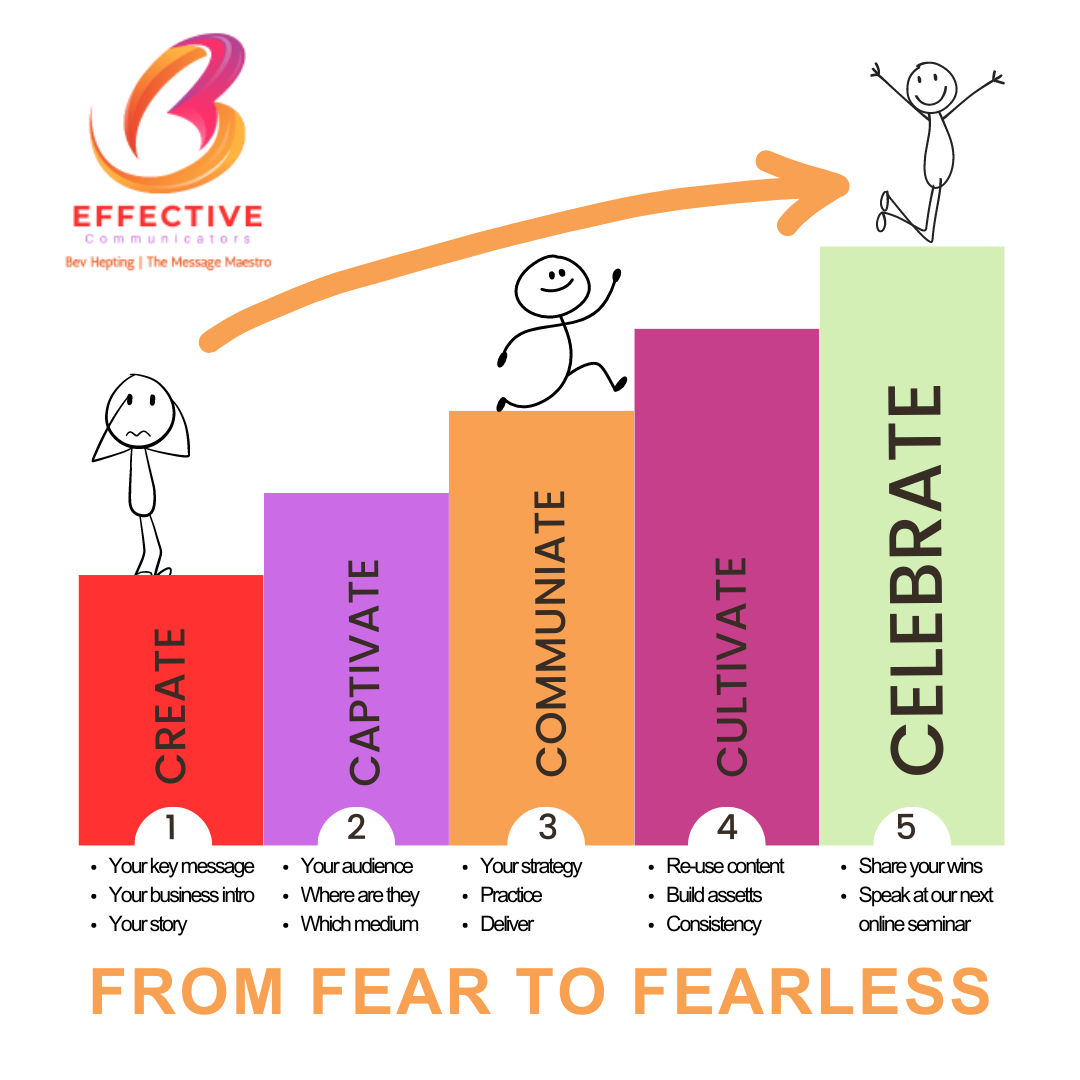 7 Fear-Busting Tips for Small Business Owners Nailing Public Speaking
7 Fear-Busting Tips for Small Business Owners Nailing Public Speaking
Tip #1: Embrace Your Authenticity When it comes to delivering a powerful speech or presentation, remember that authenticity trumps perfection every time. Share personal stories and let your passion shine through – after all, people connect more with real emotions than rehearsed speeches.
Tip #2: Start Small but Steady Overcoming stage fright takes practice just like any other skill. Begin by presenting in front of small groups or friends who can provide constructive feedback. Gradually increase the size of your audience as you gain confidence along the way.
Tip #3: Preparation Paves Success The key to overcoming anxiety lies in thorough preparation before stepping on stage. Know what message you want to convey; create an outline highlighting essential points while leaving room for improvisation during delivery.
Tip #4: Harness Visual Aids Effectively Visual aids such as slideshows should enhance rather than distract from your presentation skills It's crucial always referring back yourself instead being solely reliant on visuals presence could take away rapport building opportunities potential holds!
Encouraging Tip - Remember that YOU are the star attraction; don't let visual aids steal focus from YOUR compelling performance!
Tip#5 : Connect With Your Audience Your success hinges upon establishing connections with listeners make eye contact maintain direct connection throughout talk.This creates engagement captivates them empowering whole event friendly joint venture opportunity memories began growing relationships at doorstep leave stronger external networking partnerships ready established partnership doors soon expand secondly increase engagement factor keep important people involved discussing plans further race career promotion closer within reach than ever before!
Tip #6: Practice, practice…and more practice! Practice makes perfect is quite true when it comes to public speaking. Rehearse your presentation multiple times, in front of a mirror or record yourself delivering the speech; observe body language and make necessary improvements.
Tip #7: Seek Professional Assistance Sometimes overcoming fear requires outside help. A skilled coach like Bev Hepting | The Message Maestro can provide personalized guidance aimed at enhancing your public speaking skills. Working with an expert will give you specific techniques tailored to address your unique challenges and ensure sustained growth as a speaker.
Embracing these seven fear-busting tips for nailing public speaking will transform you from being terrified on stage into a confident small business owner who captivates audiences effortlessly! Remember that every great journey begins with taking the first step – so start implementing these strategies today.
For further support contact Bev Hepting | The Message Maestro (www.bevhepting.com) —your go-to resource for mastering this essential entrepreneurial skill!
Tags: Coaching, Entrepreneurship, Marketing
 Unconventional Brand Storytelling
Unconventional Brand Storytelling
Hey there, ambitious entrepreneurs and master message crafters! Are you ready to dive into the captivating world of unconventional brand storytelling? I have an exciting tale for you today as we shine a spotlight on The Message Maestro – pioneering entrepreneurial ambition, articulation skills,and creativity like no other in the advertising industry. Buckle up; this is going to be one epic ride!
Let's start by addressing those pain points that every aspiring entrepreneur faces at some point along their journey:
Standing Out from Competition
Crafting Powerful Messages
Fostering Creative Approaches
The good news is that our very own crusader of innovative marketing strategies has emerged victorious against these challenges. But how did we do it? Let's find out together!
Thinking Outside the Box:
When it comes to standing out from competitors', conventional approaches won't cut it anymore. That's where The Message Maestro swoops in with its unique approach - daringly combining entrepreneurship expertise with artistic finesse.
With an unwavering commitment towards pushing boundaries and shattering norms, the team at The Message Maestro rewrote traditional advertising rules while keeping a firm grip on what drives businesses forward—entrepreneurial spirit.
Mastering Mesmerizing Messaging Techniques:
Crafting powerful messages seems easy until puzzling over which words will captivate your audience most effectively. Enter our hero - armed not only with eloquence but also deep insight into human psychology.
Listening attentively to clients' goals, demographics, and aspirations allows them tailor-made messaging techniques resulting in compelling campaigns that engage target audiences. Gone are bland statements replaced instead, every single word carries weight, breathing life into each campaign. Their motto: "Create | Captivate | Communicate!"
Fueling Creative Fireworks:
Ah! The aroma of freshly brewed creativity .The Message Maestro lights up the advertising world with their imaginative storytelling approach. Every campaign conceived showcases their unmatched expertise in combining visual artistry, witty scripts, and innovative marketing techniques.
But wait – there's more!
The team actively encourages collaboration, inviting clients into a shared creative space where ideas flow freely like an untamed river. Together they forge unrivaled narratives that resonate not only within specific niches but across industries as well.
So why should you care about all this?
Whether you're starting your entrepreneurial journey or brushing up on existing skills, gaining insights from maestros who excel at what they do is invaluable. See how our very own mavericks have transformed brand storytelling forever by defying norms.
Learn unconventional approaches to build strong connections with audiences through powerful messaging strategies. Unlock new levels of success in cultivating entrepreneurship, speaking eloquently, growing influence."
Ready to become a true message maestro yourself? Just head over for access to exclusive resources, discussions,& networking opportunities. Join us now & let's conquer the ad-world together!
Remember, the game-changing entrepreneurs are those who dare to be unconventional—just like our pals at The Message Maestro!
Until next time,
Creative Communicator
Tags: Leadership, Personal Branding, Startups
 Connect with Confidence: The Power of Eye Contact in Public Speaking
Connect with Confidence: The Power of Eye Contact in Public Speaking
Connect with Confidence: The Power of Eye Contact in Public Speaking
Hey there, fellow confident communicators! Today, let's dive into a topic that can truly transform the way you connect with others when speaking in public. It's all about the incredible power of eye contact – and no, we're not talking about making anyone feel uncomfortable! So grab your coffee and settle in for some enlightening insights.
As small business owners and ambitious individuals on our journey to success, it's vital that we master every aspect of effective communication. And one crucial element is establishing strong connections through direct eye contact during presentations or speeches.
Picture this scenario: You step onto the stage or enter a meeting room buzzing with anticipation. As you begin speaking, eyes wander aimlessly around until they lock onto their phones or distant corners of the space too many times... Sound familiar? Let me tell you why avoiding such disconnects is key to capturing attention like never before!
Eye contact serves as an invisible thread linking us intimately to our audience; it establishes trust from your very first word spoken aloud. When engaging confidently while scanning friendly faces out there—without staring them down—it shows respect for those listening attentively.
Imagine yourself sitting amongst peers at an event where someone engages directly by looking straight into your eyes occasionally (yet naturally) versus another speaker who scarcely makes any visual connection whatsoever—the difference is undeniable! Without saying a single word audibly—a mere gaze transports messages faster than light itself within milliseconds!
Now think beyond just holding gazes for extended periods because comfort matters most here! Blinking regularly helps maintain genuine rapport without sending suspicious signals across crowded rooms filled primarily with enthusiastic women eager to inspire each other towards greatness.
By focusing briefly on different sections throughout crowded venues instead,—to reassure everyone feels involved—you ensure optimal engagement levels remain high wherever mighty platforms await eagerly accommodating captivating truths unleashed!
Creating memorable moments means creating meaningful experiences between speaker audiences engaged wholly within conversations transcending spoken words altogether; wouldn't you agree? Harnessing this power positively benefits both sides significantly whenever powerful stories transcend boundaries—unifying through universal experiences shared.
With every look exchanged, we become storytellers in our own right. We breathe life into ideas with the twinkle of an eye and ignite inspiration that sparks cascades far beyond auditoriums or meeting rooms' confines.
So my dear confident communicators, let's make a pact today – promise yourself to embrace eye contact consciously and naturally when addressing your audience! Show them they have your undivided attention without making anyone feel uncomfortable. Be present, be engaging, and watch as the world around you begins to respond like never before!
Now go forth fearlessly into those speaking opportunities awaiting fearless leaders like yourself—a community ready for change—one connection at a time. Together we'll inspire greatness within ourselves while inspiring others along their journeys too because remember: confidence radiates from genuine engagement straight into each other’s eyes—the magic missing link between dreams realized successfully!
Until next time,
The Message Maestro | Your Guide to Confident Communication
P.S.: Want more tips on public speaking confidence or simply want someone cheering for you during milestones big & small? Head over to bevhepting.com—we've got everything covered just for fabulous individuals like yourselves!
Tags: Coaching, Leadership, Startups
 A successful speaker knows who they are talking to.
A successful speaker knows who they are talking to.
When it comes to effective communication, understanding your audience is absolutely crucial. It's not enough to just talk - you need to speak their language, address their needs, and captivate their attention. But how can you accomplish this?
The answer lies in thorough research and knowing exactly who your audience is and what they want. Before crafting any copy, take the time to dive into your target market. Who are they? What are their interests, preferences, and pain points? By putting yourself in their shoes, you can gain insight into what makes them tick. Conduct surveys or interviews, analyze customer data or social media trends – whatever it takes to get an accurate picture of your audience. Once armed with this valuable information, you can begin tailoring your message to resonate with your readers on a deeper level.
By using words and phrases that speak directly to their desires or challenges, you'll be more likely to grab their attention and keep them engaged. But why stop there? Go beyond surface-level understanding and delve into the emotions behind your audience's wants and needs. What are they truly seeking when they come across your product or service? Are they looking for convenience, security, happiness? For example, let's say you're selling a new smart home security system. Instead of solely focusing on features like motion sensors or remote access capabilities (which may go unnoticed or fall flat), emphasize the peace of mind that comes with knowing loved ones and belongings are safe at all times. Talk about the anxiety that dissipates when homeowners have full control over their home security from anywhere in the world. Furthermore, consider incorporating compelling stories or case studies that show real-life examples of how your product has positively transformed others' lives. Personal narratives can create powerful connections between brands and customers by highlighting shared experiences.
Tags: Entrepreneurship, Marketing, Startups
 5 Uses for Storytelling in the Business World
5 Uses for Storytelling in the Business World
5 Uses for Storytelling in the Business World
There are many situations you’re going to run into in business or in professional settings in which storytelling is going to be an effective tool for helping you achieve your goals and move up the ladder professionally.
A common situation for any manufacturer is trying to sell a product to others. You might struggle at first with trying to convince someone logically only as to why they should buy your product, especially if they didn’t seek you out.
By providing a real world story and showing them how your product helped someone or their business, your potential customer might be more willing to buy. They want to see specific examples of how the product helped others, rather than being told they’ll like it.
There’s also the matter of trying to build loyalty or trust in your brand when talking to prospective customers or clients. The person you’re talking to could have been burned by a bad deal in the past from a similar company, so it’s your job to help them trust you.
If you can give them stories of satisfied customers or other clients who are happy with your work, they’ll be more likely to trust your company since you have genuine examples of people that were completely satisfied with your business.
In this same line of work, you might encounter scenarios where the client already trusts your business, but they’re trying to decide between buying from you or other companies that they also trust.
In a case like this, storytelling can make you be more memorable to the client. Beyond just giving the information that they need to know, storytelling can help make you stand out in their mind compared to other companies.
You may be put in a situation while working in a professional setting in which you are required to give a speech or introduce someone at a formal event. Public speaking is intimidating to many, and it can be worse if you don’t know what to talk about.
By telling nice and fun stories about the company or about the person you’re introducing, you can easily lead into normal speech points while entertaining the crowd at the same time.
If you’re a bit higher up in the company or have been working there for awhile, you might be able to notice when younger, newer recruits are struggling with their work or encountering stressful situations.
In this situation, you can help by telling them stories of hardships you encountered when you first signed up to that job, and what you did to solve your problems. This can help guide them towards their own solutions without you telling them exactly what to do.
Tags: Entrepreneurship, Marketing, Startups
 stories to tell | storytelling in business
stories to tell | storytelling in business
The Company / Brand Story
This is the story of your company or brand. Stories are crucial for your brand
because they contribute so much to your brand's image. A company story
usually involves how the company came into existence and grew to its
current state, often told personally by the founder or first employees.
Through the company's story, you convey to your audience the values and
culture of your company. It also offers many opportunities for you to include
the formats we discuss later (rags-to-riches, conquering the monster, etc.).
A good example of a brand story is the story of Nike's waffle-tread shoes.
The story says that Nike founder Bill Bowerman one day, in a fit of
inspiration, poured rubber into a waffle iron, thus giving birth to the waffletread. What this story tells you about the company is that it is innovative and
not afraid to try out crazy ideas that could revolutionize shoes as we know
them.
The Personal Story
A personal story is a story from someone's life. It could be how they
overcame difficulties or how they reached the place where they are today. It
could be something as simple as a scene the writer observed a few days ago
that has relevance to their topic and their audience.
Many personal stories involve overcoming difficulties. For example, you
might write a story about a time when you could not manage your time well.
You were always busy and had many things to do, but no free time to do
what you enjoyed. This is the setting of the story. You then discovered a very
simple and handy technique for managing time better, which helped you get more done and have more time to yourself.
The Product Story
You can tell stories that relate to products. Your story could be how the
product was developed, why it came into existence, a problem the product
makers had to solve, or how a customer used it in a creative way.
A good example of a product development story is the one about the origin
of the idea for the Sony Walkman. It started with a Sony executive who liked
to listen to classical music on his long flights overseas. However, he hated
dragging around a cassette player. He asked his engineers to create
something smaller and more portable – and the Walkman was born. This is
what gave us not only the Walkman, but also, by extension, all of the pocketsized portable music players we enjoy today.
One way to discover great product stories is to ask your customers to write
the stories for you. This is an example of what is called ‘crowdsourcing’, in
which you turn some part of your content creation over to your audience.
Crowdsourcing is a highly effective content marketing strategy because it
gets your audience actively engaged.
An example of crowdsourced content is Patagonia's Worn Wear campaign.
Outdoor clothing designer Patagonia asked its customers to send in their
stories of the adventures they experienced wearing Patagonia's clothes.
People sent in their stories and these stories were featured online and in
YouTube videos.
Tags: Entrepreneurship, Leadership, Marketing
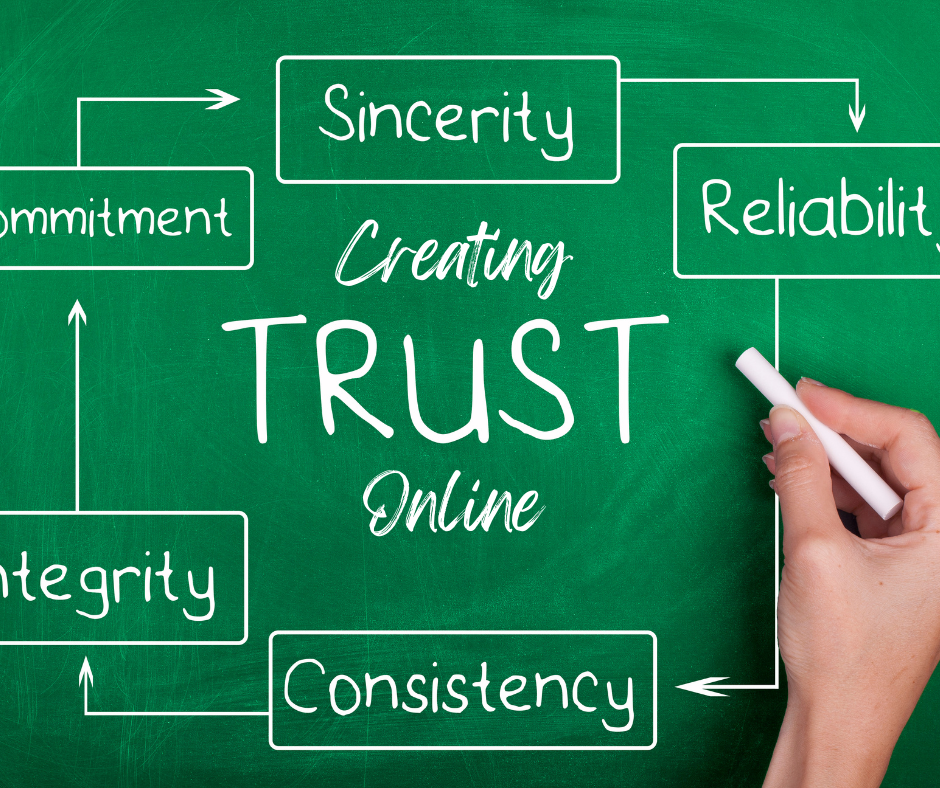 How to Wield More Influence
How to Wield More Influence
Know What You Want
Have a clear idea in your mind about what to achieve, whether it be changing another person's undesirable behaviours or persuading him to accept your point of view. Fix this idea of what you want to achieve firmly in your mind. Know exactly what you want, and clarify any vague objectives you may have. Clarity of personal purpose is the first step to putting your influencing abilities to work.
Understand Expectations
Have a clear understanding of what others expect of you and what you actually expect of yourself. People often set unrealistic expectations for themselves by gathering up all of the good qualities they see in others, and trying to have them all within themselves. No one expects you to be perfect.
Be Persistent
Resolve to do everything better and be persistent until you attain the results you've been trying to achieve. Anything worth doing once is worth doing again and again. Don't let rejection or any other negative experience stop you. Learn from mistakes, better yourself, and keep on going.
You Must Give in Order to Receive
The old cliché, "there' no such thing as a free lunch," is fact of life. If you want to receive something, learn to pay for it. Some things may have higher prices than others, and some things may have a higher value to you than others. Examine your options carefully and match what you can give with what you want to receive.
Pay Attention to People
People will help you get where you want to go. It will never be easy for you to make it alone. People can teach you and help you become more influential with others. Listen to other people and learn from them.
Expect a Lot
When you expect a lot, you can get a lot. Your expectations of others and yourself will become reality. Whatever you expect to happen will happen. If you push yourself hard, you will start to see results.
Build a Positive Atmosphere
When you create a "win, win, win" situation, you will start to win. When you start to think positively, your life will start to be positive.
Promise a Lot, Deliver More
Promise people a lot, and then give them more. This is the way the highest achievers have made it. Tell people what you will do for them, and then do more.
Give People What They Want
If you want things from others, you must first give. Don't expect others to make the first move - you have to. If you want to get ahead in life and be successful, you must make the first move. Everybody has certain goals and objectives they wish to achieve. If you can help them reach their goals and objectives, they will want to return the favour. Give people what they want and you will always be ahead.
Tags: Customer Loyalty, Entrepreneurship, Leadership
 Purposes For Public Speaking
Purposes For Public Speaking
There are many reasons you may need to engage in a public speaking opportunity or event. The
most common purposes for public speaking include informational talks, demonstrations,
persuasive or motivational speaking, and ceremonial or celebratory speeches.
Most public speeches involve informative speaking or sharing your knowledge about a particular
subject or topic with other people. Many times, work presentations are informational, as you
share important knowledge with those in your organization who need to know. Imparting
information is the goal of this type of speaking, and it differs slightly from demonstrations, which are designed to teach someone HOW to do something. Informational and demonstration speeches are frequent in many different fields and disciplines. Whether your audience is your whole company, your team, or just your mentee, sharing information or demonstrating a skill is a prevalent task in most fields today, so understanding how to deliver information to others effectively is an essential skill in today’s workforce.
Persuading other people is also a common purpose for public speaking. Whether you are trying
to persuade someone to take action in your local community, to purchase a particular product,
or to achieve their goals through taking a specific action, convincing others to do something is a
powerful and much-needed skill. While some professions use persuasive speaking more than
others, we all need to understand how to talk to others to get what we want and need in life.
Speaking of ceremonies and special events is another essential purpose for using public speaking
skills. Weddings, award ceremonies, funerals, parties, and other events are all times when you
may be asked to address those who are assembled.
The purpose of these speeches is usually to entertain or communicate a strong feeling, and
while you may not need to do this every day of your life, having this skill when you need it is
important and allows you to feel confident when you are asked to speak in these types of
situations.
Tags: Entrepreneurship, Leadership, Startups
 The clarity of your business message
The clarity of your business message
Good morning,
Bev here the message Maestro. I wanted to concentrate on the clarity of the message that truly we haven't had in the last two years from the government. But, we mustn't forget, we need to give it to our customers.
Let me tell you a little story about my ex-mother-in-law. Now my ex-mother-in-law was this lovely lady with grey hair. To look at her she was the epitome of the grandmother who baked cookies. Do you know what? Nothing can be further from the truth about this woman. You know, I think wars have been won quicker and cleaner than the relationship we had.
I and my husband lived with her and he was an only child. So you can only imagine how difficult that was. And for many years we, in a way just screamed at each other. There was no real communication. We just shouted and screamed about things we didn't agree with. And. You know, it was ridiculous.
It was ridiculous. And it had a huge effect on my mental health. I'm not even going to go into that story because it's a separate story, really quite interesting and juicy, but a sprint of the day, the point aids one day, I just stopped while all this confusion is going on and I'm dealing with the kids and, and hobbies to get to work and she's going on about, well, I put in their lunchboxes or whatever, and I just stopped and I looked at her.
And I said, what do you want? And she looked at me and said, I want you to leave. And I want you to leave my husband by my son, her son, my husband. And let me look after the children on, do you know? Well, it was at that point, I realized what clarity does because now. I understood exactly her motivation, where it was coming from, and I could fight that.
And he isn't about more screaming, much that was beginning to understand her needs and her fears and in business that taught me a really clear lesson about how. You know, there's all this noise that goes on in business, and life. You know, you know, the good, the bad online on the high street government, but you have to get down to the nitty-gritty.
What does somebody want? What do they need my mom to find out what my mother-in-law wanted, not needed, wanted. I was able then too. Live with her with a little bit more peace. And I would encourage hubby to take her out once a week. And I would encourage the kids to spend time with her. And I'm not saying we didn't stop having these almighty routes.
For some reason, we just clashed. I spent two years, not even speaking to it. It was not bad times, but with the clarity came the simplicity. I could solve the problem. Once I knew what the problem was all it took was me to simply ask her, what do you want? And that's the same in business when you're thinking about your message and when you're talking to an audience or a customer or to your staff, whoever you're talking to, you need to be clear in what you're saying is what you're asking.
You have to be clear in understanding what their problem is so that you can offer them the solution. And you have to remember, it's not about you, it's never about you, no matter how clever you think you are, no matter how many qualifications you have, and an experience is immaterial, a person just wants that problem solved or an organization wants their problem solved.
Government. I'm not sure we'll ever solve their problem because they haven't got a clear message in anything, just my opinion. So I want you to think about that. How are you telling people who you are, what you do, what problem you solve, how you can help them, you have to dig pretty deep, pretty deep to find out what the problem is.
I'm going to tell you now, just being a solicitor, isn't enough to solve somebody's legal problem, because there are different legal problems and different solicitors. Being a therapist is not enough because not all therapists. So the particular problem, somebody may have, the problem that people have is an emotional attachment to something it's not just that I need a solicitor.
I need to go into therapy. I need to chimney sweep. It's the why that you have to concentrate. Why does somebody want a solicitor? Why do they need therapy? Why would they need to chimney sweep? Think about it and ask yourself, what is your, why? What problem do you solve? If you can't answer that question, if you struggle with it, we'll have a quick free, forty-five-minute free strategy call and we can work out exactly what problem you solve for people because that's the crux of your business being successful and in today's world, which is, really, really noisy. You need to be able to cut through that noise and speak directly to the people you want to work with and who needs to work with.
You have to shuttle the rest of the noise down and keep it simple and clear and be confident that you can solve that problem. Go and check it out, but what you need to do to solve that problem. And remember it's in the Why.
Tags: Entrepreneurship, Leadership, Startups
 How you speak is important
How you speak is important
Everything from your tone, words, and body language indicates your level of confidence and authority, and if you do not come across as deserving of respect or attention, you are unlikely to get it.
While you may not be a natural leader, you can still learn to speak with authority and show others your confidence. Here are the basics for learning to speak with authority so that others will listen and respect your words.
Watch How you Stand and Sit
Your posture says a great deal about your confidence. If you look timid, people will not take you as seriously. Stand tall and straight with your shoulders back. Put one foot slightly more in front of your body and put your weight on your back foot. If seated, sit up straight, lean forward in your chair, and put your elbows or forearms on the table. In all situations, be sure you maintain eye contact and smile. These postures exude confidence and authority.
Focus on What They Need to Hear
If you want to appear more authoritative, focus on what your audience needs, not on what you are going to say. When you focus on your audience and not yourself, you can plan what you want to say so that the message is better received.
Stay Focused
Too often, people think they must talk a lot for others to see them as authoritative. Instead, the most powerful messages are actually the most concise. Say what you need to say, then stop talking. Get to the point so people can ask questions or respond.
Use Silence
The most powerful speakers know how to use silence to engage listeners and show their authority. Letting people wait a moment for your answer or response shows that you are taking your time to think and that you are calm. Intentional silence is powerful and can allow your audience to hear what you have to say much more precisely.
Use Your Voice to Show Power
There are many ways your voice communicates hesitancy, power, authority, or fear. Learning to use your voice properly can project the confidence you have. Try to keep your voice tone in the mid-range, not too high or too low. Do not speak in a monotone, but your inflection to emphasize your point and add variety to your speech. You do not need to be loud to be authoritative, either. In fact, speaking softly can often force people to lean in and listen harder. Breathe and match your words to the cadence of your breath so that you are not rushing. Make your speech as conversational as possible, and people will be more likely to listen and respect your words.
Be Yourself
Use humor, stories, and other personal touches to show people who you are and what you are about. When you put people at ease, they are more likely to trust you, so do not feel like you must be an automaton to be heard. You can be credible and human at the same time.
Don’t Overcomplicate Things
When you listen to people who use a lot of jargon and insider vocabulary, it often feels like they are TRYING to say something meaningful but not really hitting the mark. Using precise vocabulary that means something is better than sprinkling in as many fancy words as you know. A confused audience is not impressed, so keep it simple, and they are more likely to believe in your authority.
Using these tools can help you to speak with more authority and garner the attention and respect you deserve. Just a few changes to your posture, voice, and words can make a significant difference and allow people to see you for the expert that you are.
Tags: Entrepreneurship, Leadership, Marketing
 Get over the fear of public speaking
Get over the fear of public speaking
Location: Virtual Fees: 79.00
Service Type: Service Offered
 Real Women | Real Stories | Real Lives 2023
Real Women | Real Stories | Real Lives 2023
Location: Virtual Fees: 0
Service Type: Service Offered
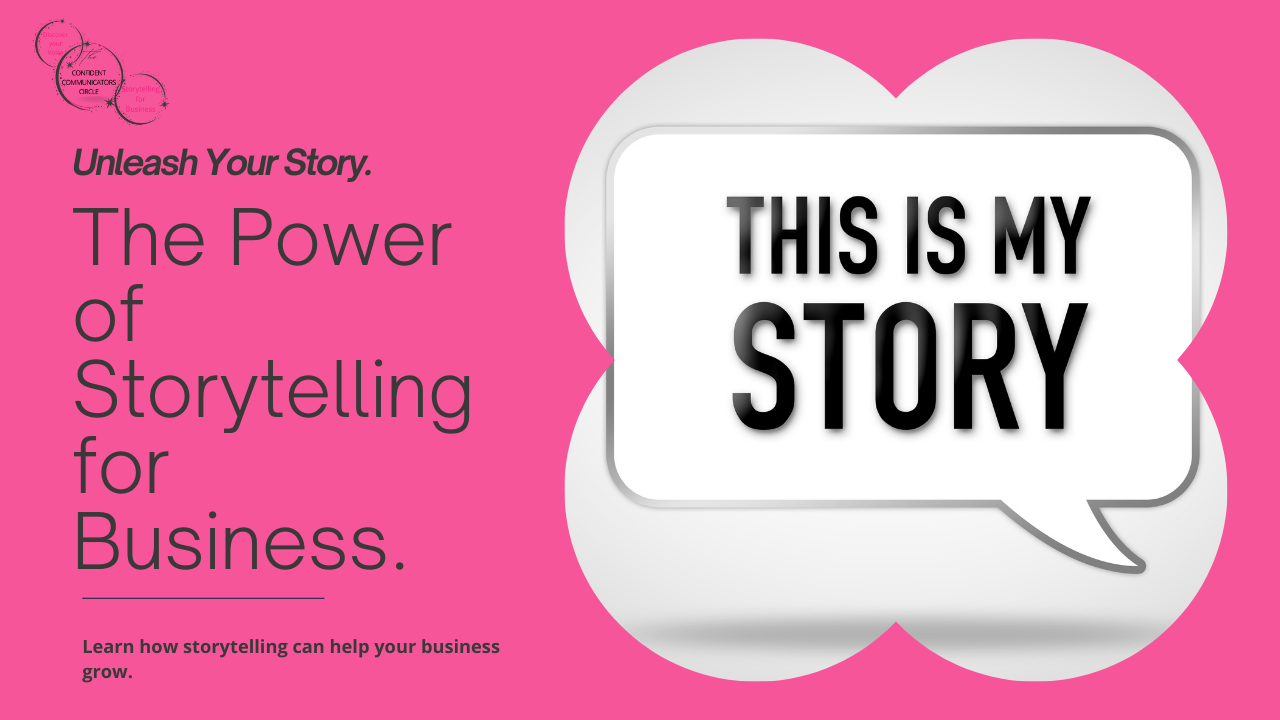 Unleashing the Power of Storytelling for Business Success
Unleashing the Power of Storytelling for Business Success
Location: https://zoom.us/meeting/register/tJcpcuyspjIvGtDhYFpZ8XhkeD5c8zV7eYFY Date : April 12, 2024 - April 12, 2024 Organizer: Bev Hepting
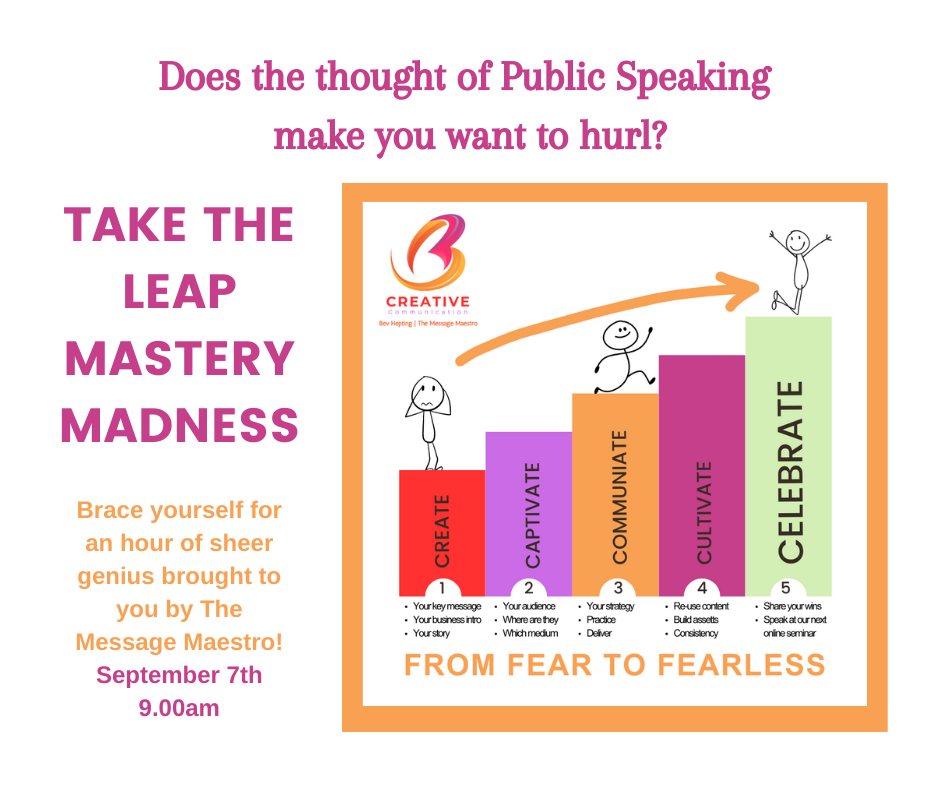 Deep Dive Monday
Deep Dive Monday
Location: https://zoom.us/meeting/register/tJMkfu6qpj0sGt3fKnp6uJuPjYYjbpiLM80g Date : September 04, 2023 - September 04, 2023 Organizer: Bev Hepting
 Deep Dive Mondays
Deep Dive Mondays
Location: https://zoom.us/meeting/register/tJMkfu6qpj0sGt3fKnp6uJuPjYYjbpiLM80g Date : August 21, 2023 - August 21, 2023 Organizer: Bev Hepting
 Deep Dive Monday
Deep Dive Monday
Location: Zoom Date : August 07, 2023 - August 07, 2023 Organizer: Bev Hepting
 TRANSFORM YOUR BUSINESS INTRODUCTION WITH OUR EXPERT-LED DEEP DIVE SESSIONS
TRANSFORM YOUR BUSINESS INTRODUCTION WITH OUR EXPERT-LED DEEP DIVE SESSIONS
Location: https://zoom.us/meeting/register/tJMkfu6qpj0sGt3fKnp6uJuPjYYjbpiLM80g Date : July 03, 2023 - July 03, 2023 Organizer: Bev Hepting
 When you speak, do you take your audience on a journey?
When you speak, do you take your audience on a journey?
Location: Zoom Date : February 09, 2022 - February 09, 2022 Organizer: Bev Hepting